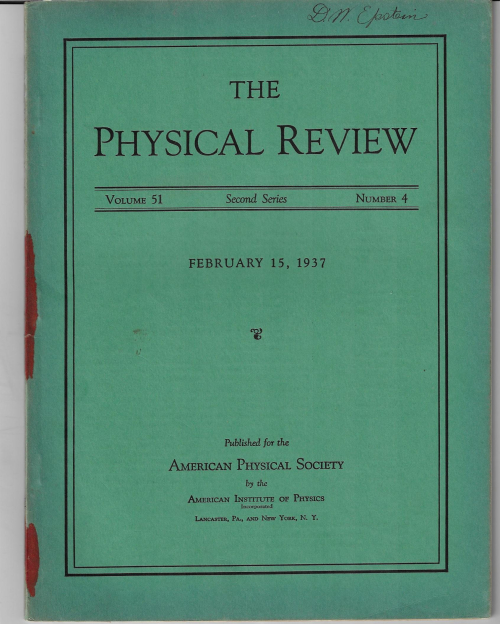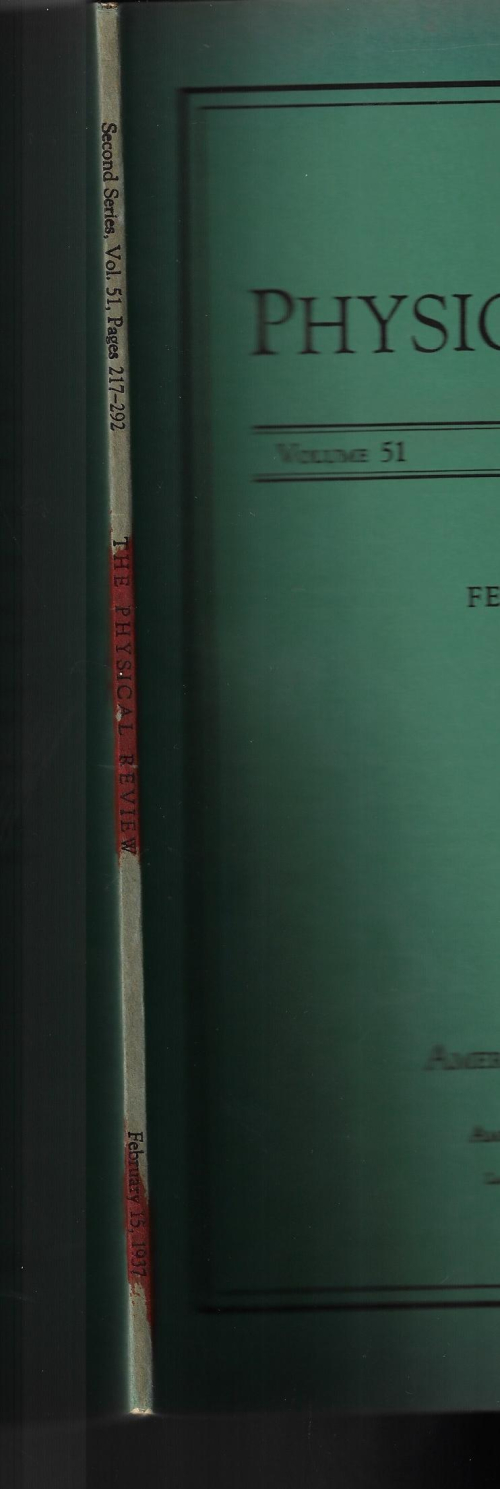 Fritz Zwicky, "Nebulae as Gravitational Lenses", in Physical Review, volume 51, number 4, February 15, 1937, with the Zwicky article being a one-column contribution on page 290 in the issue of pp 217-292. Original printed wrappers. Condition: Nice wrappers, though the spine has two red paint splotches on the spine. Fresh, but problematic copy. SOLD
Fritz Zwicky, "Nebulae as Gravitational Lenses", in Physical Review, volume 51, number 4, February 15, 1937, with the Zwicky article being a one-column contribution on page 290 in the issue of pp 217-292. Original printed wrappers. Condition: Nice wrappers, though the spine has two red paint splotches on the spine. Fresh, but problematic copy. SOLD
"In 1937 Zwicky thought of another way to investigate dark matter. If by chance a massive galaxy lies along our line of sight to a more distant galaxy, it could act as a “gravitational lens,” warping the surrounding space to magnify, distort, and even multiply the image of the background galaxy. This was a direct application of Einstein’s Theory of General Relativity. The bending of starlight by the gravity of the Sun had already been demonstrated in 1919. Zwicky predicted that massive galaxies would similarly distort the light rays from background objects and that the distortion could be used to “weigh” the lensing galaxies. Most astronomers did not take this idea seriously. But in 1979, five years after Zwicky died, the first of many gravitational lenses was discovered, and a cottage industry has since emerged to find and study them. The lensing effect is now used to measure the cosmological parameters of the universe, and to reveal distant objects otherwise too faint to see." --COSMIC HORIZONS: ASTRONOMY AT THE CUTTING EDGE, edited by Steven Soter and Neil deGrasse Tyson, a publication of the New Press, 2000.
EINSTEIN ONLINE, from the caltech website: "Fritz Zwicky (1898-1974), an astronomer at the California Institute of Technology, discussed the possibility of observing the lensing effect in the case of the recently discovered extragalactic nebula, in other words: other galaxies. The typical masses, sizes and mutual distances of galaxies are such that double images of a distant galaxy should be significantly more frequent than double images of stars: The necessary near-alignment of a closer object, a more distant object and an observer here on Earth is much more probable for galaxies than for stars."





Comments